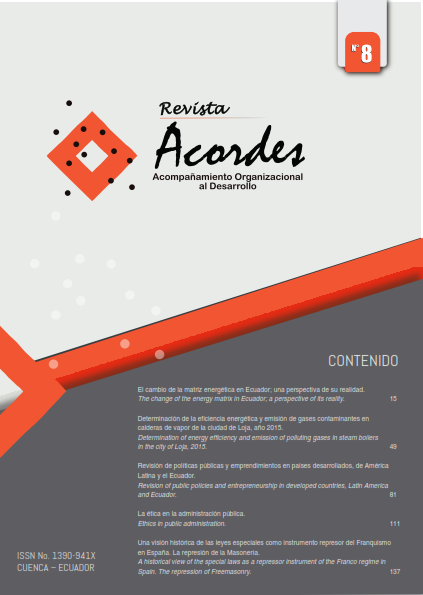A historical view of the special laws as a repressor instrument of the franco regime in Spain. The repression of Freemasonry
Abstract
The Franco regime, established in Spain after the military uprising of July 1936 and the victory in the ensuing Civil War in April 1939, was in force until the death of Francisco Franco in 1975. It was characterized as a repressive regime, based especially on the Special Jurisdiction and in some repressive Special Laws, whose most outstanding examples were the Law of Political Responsibilities of February 9, 1939 and the Law on Repression of Masonry and Communism of March 1, 1940. This special repressive legislation was applied to a collective that was especially persecuted and forbidden, the Freemasons, considered as the great enemies of the regime.
Downloads
Downloads
Published
How to Cite
Issue
Section
License
Copyright (c) 2018 info:eu-repo/semantics/OpenAccess

This work is licensed under a Creative Commons Attribution-NonCommercial-ShareAlike 4.0 International License.
The Journal declines any responsibility for possible conflicts derived from the authorship of the works published in it.
The originals of the journal Acordes, published in electronic version, are property of the Faculty of Economics and Administrative Sciences of the University of Cuenca, being necessary to cite the source in any partial or total reproduction.
Unless otherwise indicated, all contents of the electronic edition are distributed under a Creative Commons Attribution-NonCommercial-ShareAlike 4.0 International License.





